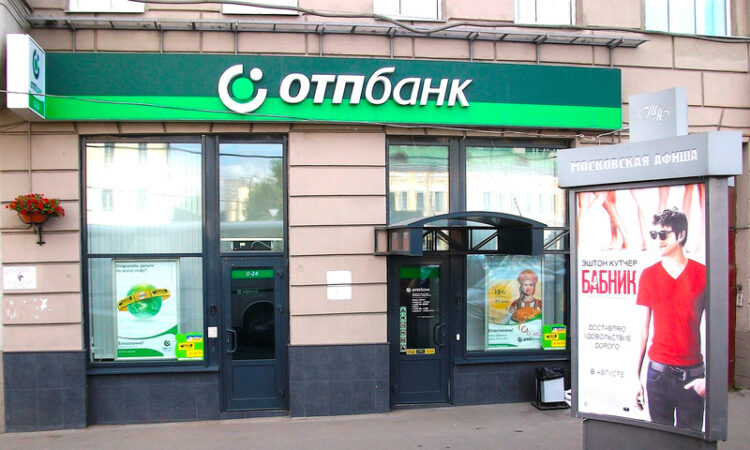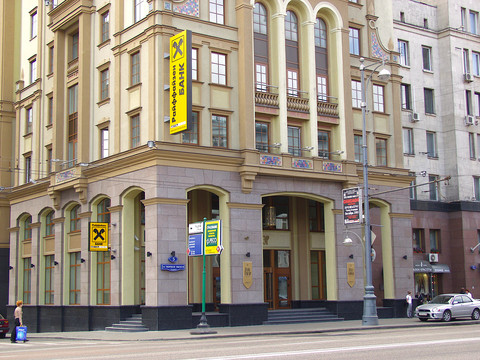
Greece and Hungary are still blocking EU sanctions on Russia, as talks drag out into their third month.
They want Ukraine to first delete Greek shipping firms and a Hungarian bank from Kyiv’s list of “international war sponsors“.
Ukraine’s unilateral name-and-shame blacklist has a purely PR significance.
But Athens and Budapest say the stigma is hurting their top companies’ reputations and are trying to use their EU veto on Russia sanctions to strong-arm Kyiv into submission.
EU ambassadors discussed the 11th round of Russia measures on Wednesday (14 June) with no outcome and will meet again on Monday to try to break the deadlock.
The 10th round of sanctions was imposed in February — the one-year anniversary of Russia’s invasion.
The 11th-round talks kicked off informally in late March and went up a gear in early May, when the European Commission proposed a new blacklist and trade curbs on arms technology.
The hope now is for an agreement by 26 June, when EU foreign ministers next meet.
EU leaders gathering in Brussels three days later also aim to declare the new Russia sanctions.
“The European Council will review efforts to increase pressure on Russia to limit its ability to wage its war of aggression, including sanctions against Russia and those supporting its war efforts [and is expected to welcome the adoption of the 11th package of sanctions against Russia],” they are to say, according to draft conclusions seen by EUobserver.
But as the clock ticks, Kyiv appears to be in no mood to let Hungary’s OTP Bank, Budapest’s largest lender, off the war-sponsor list.
“The bank’s management continues to work in Russia, pay taxes, and this money goes to war. For this money, [Russian president Vladimir] Putin makes new rockets that fly into the homes of innocent Ukrainians,” said Ukrainian MP Alex Goncharenko, who chairs a transatlantic sanctions caucus.
“Why doesn’t Hungary start with itself and fix the situation?,” he told EUobserver.
“They want to do business in Russia, but at the same time, they want to have good relations with Ukraine. You can’t be on two sides at once — you have to choose a side,” Goncharenko said.
The Greek foreign ministry did not reply to EUobserver.
Hungary and EU institutions never answer press questions on sanctions talks.
But one EU diplomat said: “Certain EU states, with Hungary leading the pack, are becoming increasingly transactional on Russia sanctions and support for Ukraine”.
“Weighing on the same scales the interests of banks or shipping firms, versus existential issues for the West, is not just short-sighted, it counters our strategic goals and, as such, it’s suicidal,” he added.
The Ukrainian shame-list also includes Austrian, French, German, Italian, and US companies — but none of these countries are giving their private corporations the same diplomatic cover as Hungary and Greece.
Greece aside, Hungary is also blocking Sweden’s Nato accession, in a pressure campaign to claw back frozen EU funds.
The EU froze the money because of prime minister Viktor Orbán’s “illiberal” regime in Hungary.
And the US is now also losing patience with its Nato ally.
“Hungary should take the actions necessary to allow Sweden into the alliance, and soon,” said Republican US senator Jim Risch on Wednesday, after his committee put on hold a $735m arms deal with Budapest use to the Nato dispute.
Chinese firms
The EU Commission’s 11th-round Russia proposal aimed to curb trade in arms components to eight Chinese firms, which it accused of circumvention of [EU] trade restrictions” on Russia’s military-industrial complex.
It also proposed to blacklist a few dozen low-level Russian officials accused of child abduction and art looting in Ukraine, as well as propagandists, such as Russian academic Sergey Karaganov, who called for nuclear war against the West this week.
But according to EU diplomats, just three of the eight Chinese firms are now to be listed, following Beijing’s assurances of good behaviour, as well as German and Italian concern on spoiling relations with China.
And while the rest of the proposed 11th blacklist has more or less stayed the same, its level of ambition is far lower than initial ideas circulated in Brussels some 10 weeks ago.
The EU should take action against Kremlin cash-cow diamond, nuclear, and liquid-gas companies, Poland and the Baltic states had said.
It should also blacklist Gazprombank and some of Russia’s wealthiest business magnates, they said, to no avail.






